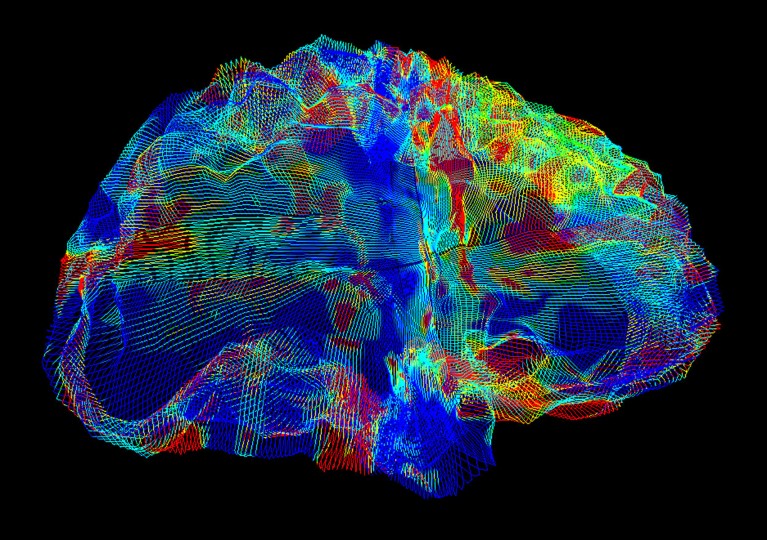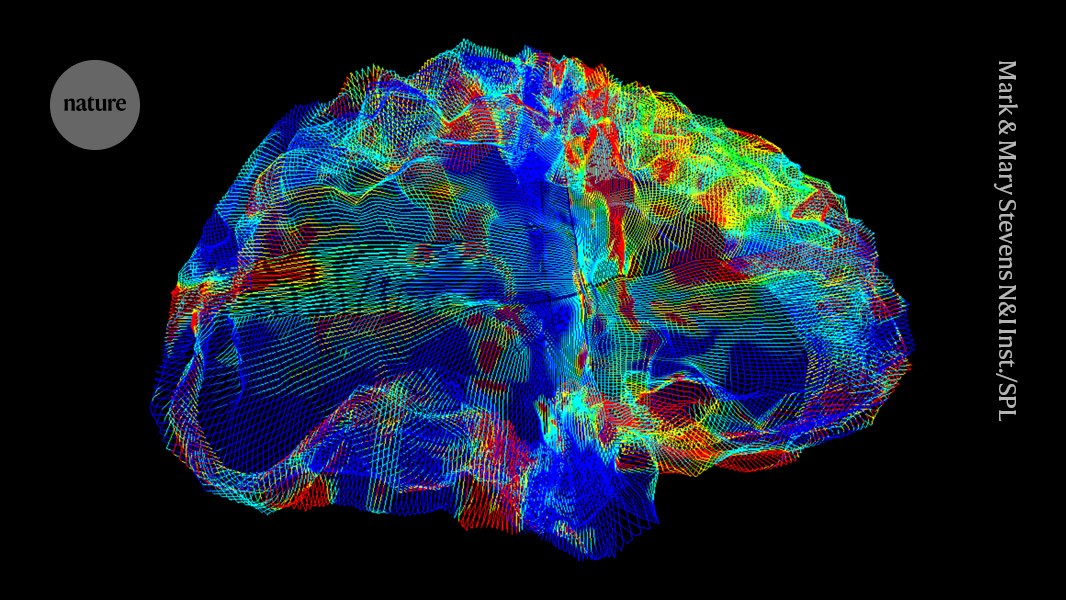
Almost 60 million people globally have neurodegenerative diseases such as Alzheimer’s disease.Credit: Mark & Mary Stevens Neuroimaging and Informatics Institute/Science Photo Library
A gene variant known to increase the risk of Alzheimer’s disease also makes people vulnerable to a host of other age-related brain disorders, from Parkinson’s disease to motor neuron disease. The gene variant, a version of apolipoprotein E called APOE ε4, produces a distinct set of proteins that contribute to chronic inflammation, finds an analysis1 using the largest proteomics database for neurodegenerative disease.
Neurodegenerative diseases affect more than 57 million people worldwide. Researchers know that people who carry the APOE ε4 variant have an increased risk of developing late-onset Alzheimer’s disease, but studies are beginning to implicate this version, or allele, of APOE in other neurodegenerative diseases.
Caitlin Finney and Artur Shvetcov, who study neurodegenerative diseases at the Westmead Institute for Medical Research in Sydney, Australia, and their colleagues wanted to better understand how this genetic risk factor contributes to disease. They took advantage of a newly established proteomics database that allowed them to look beyond individual diseases, says Finney.
The Global Neurodegeneration Proteomics Consortium (GNPC) data set2 includes samples from more than 18,600 individuals, mainly of European ancestry, including many with Alzheimer’s, Parkinson’s, a form of motor neuron disease called amyotrophic lateral sclerosis (ALS) and types of dementia, as well as individuals without neurological disorders. The consortia collected around 250 million measurements of proteins found in the blood and cerebrospinal fluid, which surrounds the brain and spinal cord, taken at some two dozen clinics across the United States and Europe. “It’s one of the most powerful databases that we have available for proteomics right now,” says Maryam Shoai, a bioinformatician at University College London.
Predicting risk
In their analysis, Finney, Shvetcov and their collaborators looked at proteomics data from 11,270 individuals, some 38% of whom were carriers of the APOE ε4 variant, and 40% of whom had some form of neurodegenerative condition. “It’s a huge study,” says Tomas Deierborg, who studies neuroinflammation at Lund University in Sweden. The results are published today in Nature Medicine, along with a suite of other papers using the GNPC database, which has also been made publically accessible today.
The researchers identified a group of proteins — a couple of hundred in the cerebrospinal fluid and almost 60 in blood plasma — linked to the presence of the APOE ε4 variant in healthy individuals. A similar protein signature was observed when the team analysed data from a separate collection of brain tissue samples taken postmortem from individuals with neurodegenerative diseases.


